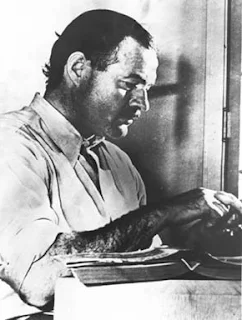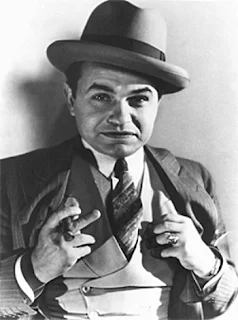J.R.R. Tolkien (1892-1973)
John Ronald Reuel Tolkien, CBE (pron.: /ˈtɒlkiːn/;[1] 3 January 1892 – 2 September 1973) was an English writer, poet, philologist, and university professor, best known as the author of the classic high fantasy works The Hobbit, The Lord of the Rings, and The Silmarillion.
He served as the Rawlinson and Bosworth Professor of Anglo-Saxon at Pembroke College, Oxford, from 1925 to 1945 and Merton Professor of English Language and Literature at Merton College, Oxford from 1945 to 1959.[2] He was at one time a close friend of C. S. Lewis—they were both members of the informal literary discussion group known as the Inklings. Tolkien was appointed a Commander of the Order of the British Empire by Queen Elizabeth II on 28 March 1972.
After his death, Tolkien's son Christopher published a series of works based on his father's extensive notes and unpublished manuscripts, including The Silmarillion. These, together with The Hobbit and The Lord of the Rings form a connected body of tales, poems, fictional histories, invented languages, and literary essays about a fantasy world called Arda, and Middle-earth[3] within it. Between 1951 and 1955, Tolkien applied the term legendarium to the larger part of these writings.[4]
While many other authors had published works of fantasy before Tolkien,[5] the great success of The Hobbit and The Lord of the Rings led directly to a popular resurgence of the genre. This has caused Tolkien to be popularly identified as the "father" of modern fantasy literature[6][7]—or, more precisely, of high fantasy.[8] In 2008, The Times ranked him sixth on a list of "The 50 greatest British writers since 1945".[9] Forbes ranked him the 5th top-earning dead celebrity in 2009.[10]
Quotes·Quotations by J.R.R. Tolkien
Advice
¶ All that is gold does not glitter,
Not all those who wander are lost;
The old that is strong does not wither,
Deep roots are not reached by the frost.
From the ashes a fire shall be woken,
A light from the shadows shall spring;
Renewed shall be blade that was broken,
The crownless again shall be king.
Notes
[1]^ Tolkien pronounced his surname /ˈtɒlkiːn/, see his phonetic transcription published on the illustration in The Return of the Shadow: The History of The Lord of the Rings, Part One. [Edited by] Christopher Tolkien. London: Unwin Hyman, [25 August] 1988. (The History of Middle-earth; 6) ISBN 0-04-440162-0. The position of the stress is not entirely fixed: stress on the second syllable (tol-keen rather than tol-keen) has been used by some members of the Tolkien family. In General American the surname is also pronounced /ˈtoʊlkiːn/. This pronunciation no doubt arose by analogy with such words as toll and polka, or because many General American speakers lack vowels of the [ɒ] and [ɔː] types; thus this becomes the closest possible approximation to the Received Pronunciation in their phonologies. Wells, John. 1990. Longman pronunciation dictionary. Harlow: Longman, ISBN 0-582-05383-8
[2]^ Biography, pp. 111, 200, 266.
[3]^ "Middle-earth" is derived from an Anglicized form of Old Norse Miðgarðr, the land inhabited by humans in Norse mythology.
[4]^ Letters, nos. 131, 153, 154, 163.
[5]^ de Camp, L. Sprague (1976). Literary Swordsmen and Sorcerers: The Makers of Heroic Fantasy. Arkham House. ISBN 0-87054-076-9. The author emphasizes the impact not only of Tolkien but also of William Morris, George MacDonald, Robert E. Howard, and E. R. Eddison.
[6]^ Mitchell, Christopher. "J. R. R. Tolkien: Father of Modern Fantasy Literature". Veritas Forum. Retrieved 2 March 2009.
[7]^ The Oxford companion to English Literature calls him "the greatest influence within the fantasy genre. (Sixth edition, 2000, page 352. Ed. Margaret Drabble.)
[8]^ Clute, John, and Grant, John, eds. (1999). The Encyclopedia of Fantasy. St. Martin's Press. ISBN 0-312-19869-8.
[9]^ "The 50 greatest British writers since 1945". The Times (London). 5 January 2008. Retrieved 17 April 2008.
[10]^ Miller, Matthew (27 October 2009). "Top-Earning Dead Celebrities". Forbes.com.
http://en.wikipedia.org/wiki/J._R._R._Tolkien


-Portr_01030.tif)




















